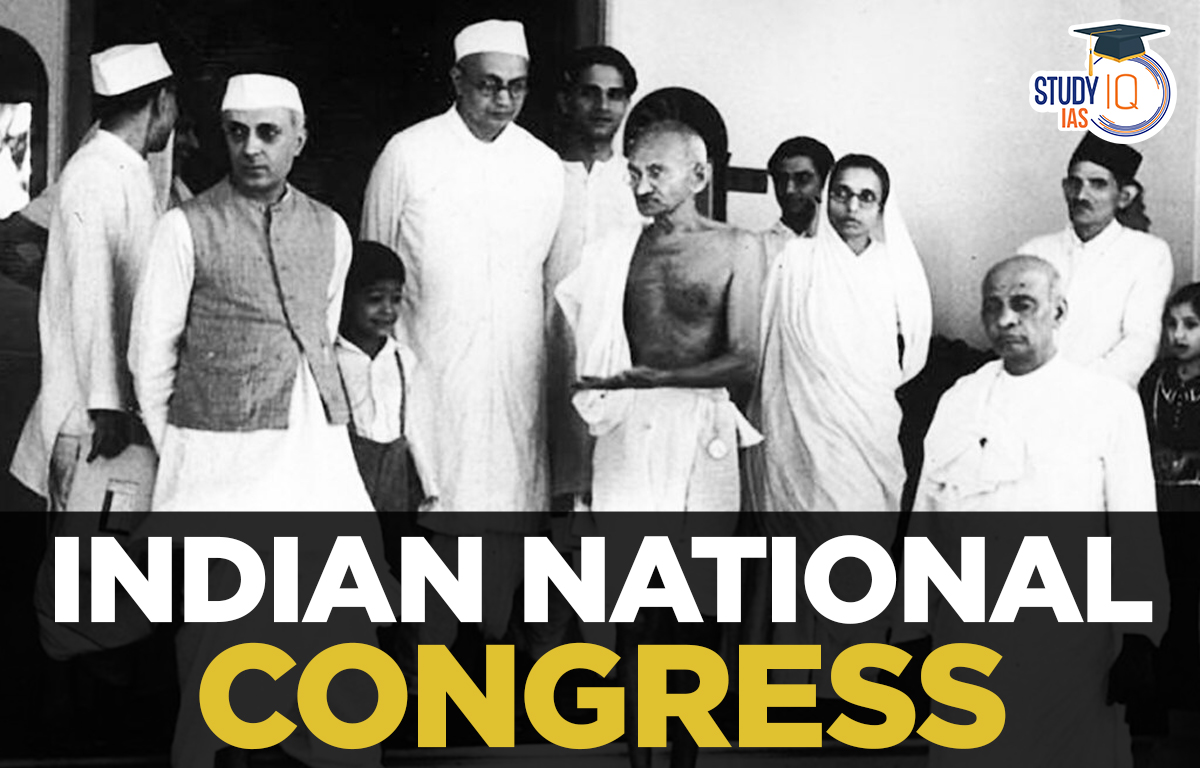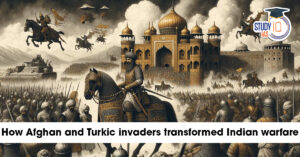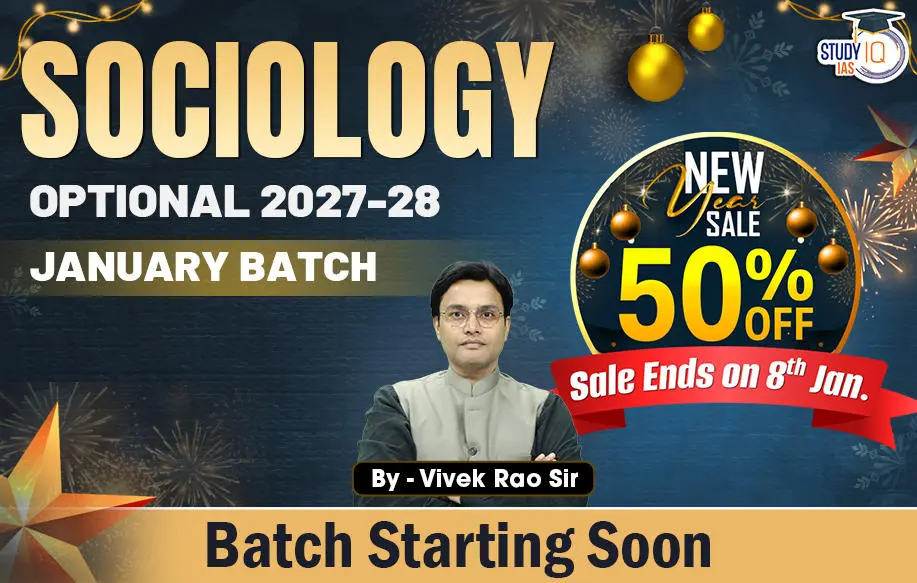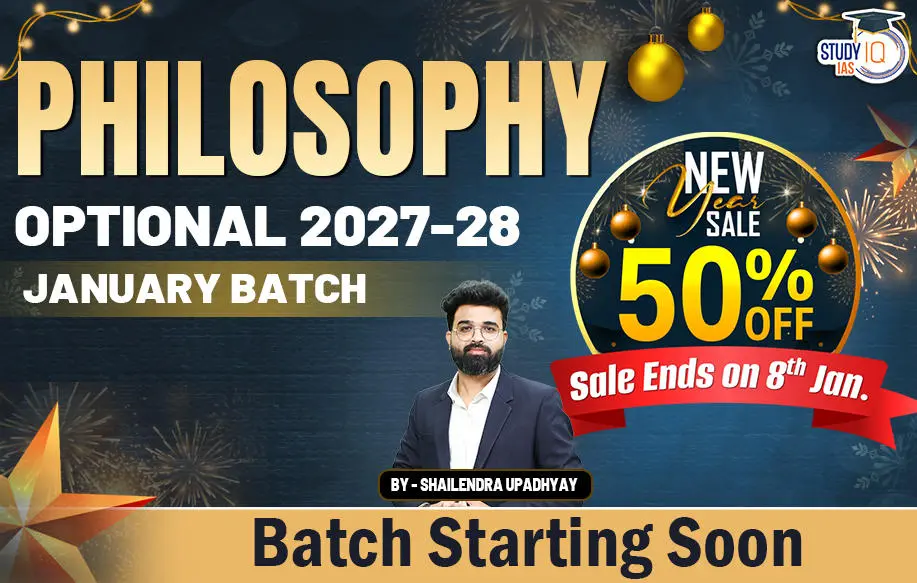Table of Contents
The Indian National Congress (INC) is one of the oldest and most influential political parties in India. Founded in 1885, the INC has played a significant role in shaping India’s political landscape, from the fight for independence to the post-independence period. This detailed SEO article will explore the history, foundation, objectives, and features of the Indian National Congress, shedding light on its importance in Indian politics.
Indian National Congress
The Indian National Congress (INC), founded in 1885, is one of India’s oldest and most prominent political parties. Initially formed as a platform for moderate political reforms and Indian representation under British colonial rule, it evolved into the central force in India’s freedom struggle. The INC played a key role in India’s independence movement, particularly under the leadership of Mahatma Gandhi, who introduced non-violent resistance strategies like civil disobedience and the Quit India Movement.
Post-independence, the INC became the dominant political party in India, leading the country for several decades under leaders like Jawaharlal Nehru, Indira Gandhi, and Rajiv Gandhi. The party’s core values include secularism, social justice, and democratic governance.
Today, despite facing challenges and competition from other political parties, the INC remains a significant political force in India, with a strong presence in various states and a focus on policies that promote economic development, social equality, and national unity.
Indian National Congress History
The Indian National Congress was founded by 72 delegates on December 28, 1885, at Gokuldas Tejpal Sanskrit College in Mumbai (then Bombay). It was created by former Indian Civil Services Officer Allan Octavian Hume. The Congress was established with the goal of fostering a climate that would allow for polite dialogue between Indians and the British.
Only educated Indians were invited to the Congress. Through the Congress, the British could gain support for their rule in India. This was made feasible because educated Indians were more receptive to modernization concepts and could therefore influence other Indians. The General Secretary of the Congress was Allan Octavian Hume, and President of the Congress was Womesh Chunder Banerjee.
Indian National Congress Foundation
In the late 1870s and early 1880s, the foundation for the creation of an all-India organization had been created. A.O. Hume, a retired English civil official, gave this concept its definitive form by enlisting the help of prominent intellectuals of the day.
For the first session, Hume received approval from Lord Dufferin, the viceroy of India at the time. Due to a cholera outbreak in Poona, where it was originally scheduled to take place, it was shifted to Bombay. In 1883, Hume expressed his wish to create an organisation for educated Indians to demand greater participation in government and to offer a forum for discussion in an open letter to Calcutta University graduates.
The first woman to graduate from Calcutta University, Kadambini Ganguly, spoke before Congress in 1890, demonstrating the liberation movement’s dedication to ensuring that Indian women receive their proper standing in public life.
Indian National Congress Feature
The INC was the country of India’s first national political movement, and its main goal was to boost Indian participation in governmental affairs. Later, it upgraded its objective to complete independence. Following independence, it evolved into a powerful political force in the country. In its early years, the INC was a moderate group that restricted its tactics to constitutional ones and discourse.
Its demands were limited to increasing the percentage of Indians participating in the armed services and government. Independence was never discussed. After some time, the party’s demands and strategy grew more extreme.
The party had clearly split by 1905, with the more recent segment, the extremists, who were known for their radical tactics, and the long-standing moderates. Along with the Indian National Congress, provincial conferences, associations, newspapers, and literature also participated in nationalist action.
Indian National Congress Objective
The Indian National Congress was the country’s first large-scale political movement, and its main goal was to boost Indian participation in governmental affairs. The goal is to foster friendly contacts between nationalist political activists from various parts of the nation. INC Developing and enhancing a sense of national unity that transcends caste, religion, and province was the goal.
The goal was to compile and submit a list of general demands to the government. Another goal was to organise and inform the public opinion of the country. Creating and promoting an anti-colonial nationalist concept and upholding a sense of national unity among all citizens, regardless of their religion, caste, or province, were additional goals.
Indian National Congress Role of A. O Hume
Following the Theosophical Convention in Madras in December 1884, a small group of seventeen persons is believed to have discussed the concept for an all-India congress. It is also said that Hume’s Indian union, which he created after leaving the Civil Service, contributed to the Congress’s convocation.
We can infer that there was a need for such an organization, and A.O. Hume took the initiative, regardless of where the idea originated or who the idea’s original creator was. Hume was the son of British radical activist Joseph Hume. He adopted his father’s political beliefs and originally had an interest in European revolutionary groups.
He began working for the East India Company in 1849 and was stationed in the Northwestern Provinces. He got interested in initiatives like promoting education, eradicating social ills, and advancing agriculture. Even Hume launched a newspaper in 1861 to inform Etawah residents about political and social issues.
The other British commanders did not appreciate Hume’s pro-Indian position and efforts to advance Indian welfare. Hume was made Secretary to the Government of India in 1870. For his opinions, Viceroy Northbrook threatened to fire Hume.
Additionally, he did not get along with Lord Lytton, and as a result, he was demoted in 1879 and eventually left the service in 1882. Hume established himself in Shimla and developed a passion for Indian politics. He felt more sympathy for the Bombay and Poona factions than for the leaders of Calcutta, such Surendranath Banerjee and Narendra Nath Sen. Hume also got to know Viceroy Lord Ripon and developed an interest in his plan for local self-government.
Indian National Congress Foundation Theories
1. Safety Valve Theory (Lala Lajpat Rai)
It has been hypothesized that A.O.Hume, a retired English civil officer who created the INC rather than an Indian, did so in order to address the growing unrest against British authority. Viceroy Dufferin is said to have given Hume the idea for an annual gathering of intelligent Indians for political discourse.
This may be somewhat true, but there is no solid proof that Dufferin suggested the INC’s formation or that the INC was meant to serve as a “safety value.”
2. Conspiracy Theory (R P Dutt)
The idea of a “safety valve” gave rise to the conspiracy theory of the Marxist historian. According to R.P. Dutt, the bourgeois leaders conspired to put down an uprising of the Indian people, and this is how the Indian National Congress came to be.
3. Lightning Conductor Theory (G.K Gokhale)
Indians who were politically aware wanted to create a national organisation to voice their political and economic aspirations, and the Indian National Congress served as their representation. The authorities would have been violently opposed to such a body if the Indians had created it on their own; it would not have been permitted to exist.
Even though they did so in the name of a “safety valve,” the early Congress leaders utilised Hume as a “lightning conductor,” or a catalyst, to unite patriotic forces.
Indian National Congress UPSC
The fight for India’s independence from foreign domination was officially began in 1885 with the founding of the National Congress, which was modest but well-organized. The national movement would intensify, and until freedom was attained, neither the nation nor its citizens could rest. This article contains comprehensive information on UPSC Exam Preparations.


 Birsa Munda Birth Anniversary 2025: Life...
Birsa Munda Birth Anniversary 2025: Life...
 Military Innovations of Afghans and Turk...
Military Innovations of Afghans and Turk...
 Self-Respect Movement, History, Objectiv...
Self-Respect Movement, History, Objectiv...

























